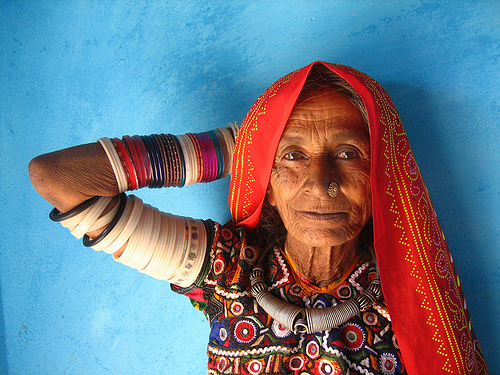
The latest Asia-Pacific Human Development Report 2010, entitled "Power, Voice and Rights: A Turning point for Gender Equality in Asia and The Pacific" released by the United Nations on International Women's Day has recommended proactive action in the field of legal rights for women.
The paper said that it is important to check bias and take corrective measures to redress past discrimination as healthy legal institutions both in the sense of substance of the laws and how they are upheld can become powerful tools to advance equality. A necessary corollary is a sound legal system that provides backing for economic and political empowerment.
The report suggested a three-pronged strategy to improve gender equality in law which while rooted in domestic circumstances should benefit from the best international norms to "achieve inclusiveness through dynamic reforms, build on the power of civil society activism and change attitudes to extend the law's reach".
The report emphasised that despite the multitude of statutory provisions and guidelines stemming from the constitutional guarantee of equality before law, women continue to face discrimination in the Asia-Pacific region.
The problems highlighted in the report had taken into account disparities prevalent in the Indian context also.
"The region falls far behind where it could be on basic issues such as protecting women from violence, upholding entitlements to property—or even allowing people to divorce in an informed and reasonable way," it read.
It recognised two main barriers: "The first comes from the construction of laws themselves, which may be overtly discriminatory, full of gaps or contradictory. The second barrier is restricted access to the legal system and to justice within it. This involves all the reasons that women— because they are women—may not go to police, the court or other mechanisms for justice, or may not find equal treatment even if they do."
A mix of factors like a colonial past, lack of education and opportunities for socio-economic development, rudimentary beliefs and practices, indigenous customs based archaic laws was held responsible for a deteriorating law and order situation.
The report seeks to implement stringent norms and policy measures introduced through legislative changes in the form of Domestic Violence Act 2005, anti-dowry legislations, uniform application of inheritance laws and affixing culpability in cases of sexual harassment at workplace.
But it adds that the enforcement agencies in India have yet to tackle problems that have time and again defeated the whole purpose and objective of the statutes.
"Even those states that have tried to remove overtly discriminatory statutes still have gaps in laws and legal practices that fail to check gender biases. Divorce, inheritance, gender-based violence, labour rights, rules of evidence, citizenship—the list of legal issues that deserve immediate attention is long and worrisome."
The twin recommendations in the arena of legal rights directed to pursue gender-equitable laws and address legal discrimination and close gaps between laws and legal practice.
"The justice system should ensure that legal practices are consistent with laws on the books and that access to justice is broadly available. Professional training for lawyers, judges, magistrates and police should include an orientation around the needs of marginalized groups. Crimes against women should not be treated lightly."
The passage of the women's reservation bill by the Rajya Sabha yesterday evening has removed the first roadblock towards an equitable parliamentary democracy, but it is yet to be ascertained if the benefits will percolate to advance the legal rights of women in this country.
threads most popular
thread most upvoted
comment newest
first oldest
first
Introduction for strict laws should have been discussed and recommended for all those notorious women who takes advantage of 498A.
threads most popular
thread most upvoted
comment newest
first oldest
first